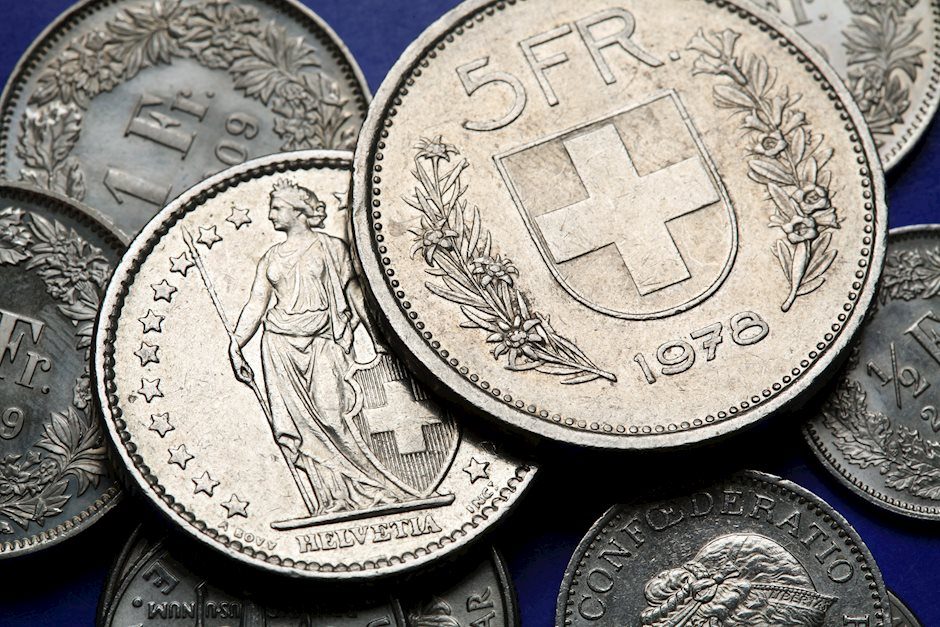USD/CHF stays near 0.8950, focus shifts to Fedspeak
- USD/CHF holds steady as market participants await speeches from Fed members.
- Fed member Kugler indicated rates will be maintained longer if upcoming data does not confirm a slowdown in inflation.
- Swiss 10-year bond yield declined to near 0.54%, nearing its lowest level since August 2022.

USD/CHF holds ground near 0.8940 during the Asian session on Wednesday. The USD/CHF pair may receive support from a modest rebound in the US Dollar (USD), which is likely influenced by improved Treasury yields.
Federal Reserve (Fed) Board of Governors member Dr. Adriana Kugler recently noted that while inflationary pressures have eased, the Fed requires more data to justify a rate cut. Dr. Kugler suggested that if upcoming data fails to show progress towards the 2% inflation target, maintaining current rates longer may be appropriate.
Market focus turns to key US economic data and the Fed Beige Book on Wednesday, alongside speeches from Fed officials Thomas Barkin and Christopher Waller. On the Swiss front, attention will shift to Trade Balance data due on Thursday.
On the Swiss front, the 10-year government bond yield further declined to near 0.54%, nearing its lowest level since August 2022, reflecting a similar trend seen in US bond yields. This movement followed remarks from Federal Reserve Chair Jerome Powell, which bolstered expectations for a rate cut by the Fed in September.
Fed Chair Powell, on Monday, indicated that recent US inflation data "add somewhat to confidence" that inflation is progressing towards the Fed’s target sustainably, implying that a move towards interest rate cuts could be forthcoming.
The Swiss National Bank (SNB) reduced its key interest rate by 25 basis points for the second consecutive meeting in June. This decision was driven by subdued inflationary pressures and the resilience of the Swiss Franc (CHF).
Swiss Franc FAQs
The Swiss Franc (CHF) is Switzerland’s official currency. It is among the top ten most traded currencies globally, reaching volumes that well exceed the size of the Swiss economy. Its value is determined by the broad market sentiment, the country’s economic health or action taken by the Swiss National Bank (SNB), among other factors. Between 2011 and 2015, the Swiss Franc was pegged to the Euro (EUR). The peg was abruptly removed, resulting in a more than 20% increase in the Franc’s value, causing a turmoil in markets. Even though the peg isn’t in force anymore, CHF fortunes tend to be highly correlated with the Euro ones due to the high dependency of the Swiss economy on the neighboring Eurozone.
The Swiss Franc (CHF) is considered a safe-haven asset, or a currency that investors tend to buy in times of market stress. This is due to the perceived status of Switzerland in the world: a stable economy, a strong export sector, big central bank reserves or a longstanding political stance towards neutrality in global conflicts make the country’s currency a good choice for investors fleeing from risks. Turbulent times are likely to strengthen CHF value against other currencies that are seen as more risky to invest in.
The Swiss National Bank (SNB) meets four times a year – once every quarter, less than other major central banks – to decide on monetary policy. The bank aims for an annual inflation rate of less than 2%. When inflation is above target or forecasted to be above target in the foreseeable future, the bank will attempt to tame price growth by raising its policy rate. Higher interest rates are generally positive for the Swiss Franc (CHF) as they lead to higher yields, making the country a more attractive place for investors. On the contrary, lower interest rates tend to weaken CHF.
Macroeconomic data releases in Switzerland are key to assessing the state of the economy and can impact the Swiss Franc’s (CHF) valuation. The Swiss economy is broadly stable, but any sudden change in economic growth, inflation, current account or the central bank’s currency reserves have the potential to trigger moves in CHF. Generally, high economic growth, low unemployment and high confidence are good for CHF. Conversely, if economic data points to weakening momentum, CHF is likely to depreciate.
As a small and open economy, Switzerland is heavily dependent on the health of the neighboring Eurozone economies. The broader European Union is Switzerland’s main economic partner and a key political ally, so macroeconomic and monetary policy stability in the Eurozone is essential for Switzerland and, thus, for the Swiss Franc (CHF). With such dependency, some models suggest that the correlation between the fortunes of the Euro (EUR) and the CHF is more than 90%, or close to perfect.
Author

Akhtar Faruqui
FXStreet
Akhtar Faruqui is a Forex Analyst based in New Delhi, India. With a keen eye for market trends and a passion for dissecting complex financial dynamics, he is dedicated to delivering accurate and insightful Forex news and analysis.

















